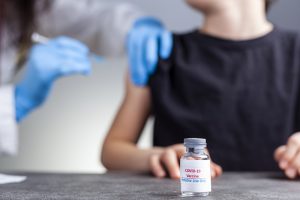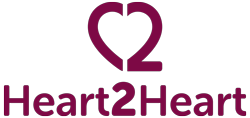Updated BCCA Statement on COVID Vaccinations for Children and Young People
COVID19 Vaccination for children and young people
The Pfizer/BioNTech vaccine was approved for use in children aged 12-15 years by the Medicines and Healthcare products Regulatory Agency (MHRA) on June 4th 2021.
The Joint Committee for Vaccination and Immunisation (JCVI) recommended two doses of COVID-19 vaccine (Pfizer/BioNTech) for children between 12 and 18 years and either an immune suppressed family member or an underlying health condition on July 19th 2021. This recognised the greater risks with COVID-19 disease for children with underlying health conditions. The BCCA has provided advice on which groups of patients with congenital heart disease should be offered two doses of COVID-19 vaccine.
On 4th August 2021, JCVI recommended a single dose of vaccine to all 16-17 year olds, whether or not they had underlying health conditions. On September 5th 2021, JCVI concluded that there was marginal benefit to offering COVID-19 vaccination in healthy 12-15 year old children. After wider consideration by the professional societies and on the advice of the Chief Medical Officers, COVID-19 vaccine was offered to all children age 12-15 years in England and Wales from September 13th 2021.
When considering whether or not to recommend COVID-19 vaccination for use in children, it is important to consider the risks and the benefits. Whilst COVID-19 rarely leads to serious illness in children, in a situation where the disease is very common in the population, even rare health problems may be seen in greater numbers. The adverse outcomes that concern us for children and young people with COVID-19 include:
1) Being unwell enough to need hospitalisation, which has happened in approximately 0.5% of those children who tested positive for COVID-19, prior to the vaccination programme starting in August 2021. Importantly for the vaccine programme, detailed studies have shown that more than half of such children have no underlying health conditions.
2) Critical illness with COVID-19, which is much more common in children with underlying health conditions. This has affected 292 children between 14th March 2020 – 31st July 2021 according to the Paediatric Intensive Care Audit Network (PICANeT).
3) Paediatric Multi System Inflammatory Syndrome (PMS-TS), which predominantly affects healthy children, particularly those from Black and Minority Ethnic groups, and was diagnosed in 444 children in the same period (PICANeT).
These rare adverse outcomes need to be considered in the context of a rare side effect of vaccine myocarditis. The BCCA has provided advice on this side effect.
We note that of millions of children who have received the COVID-19 vaccine in USA, Canada, Israel and other countries, rare cases of COVID-19 vaccine myocarditis have been reported, predominantly in younger males, peaking 2-3 days after the second dose. The commonest presenting symptoms are chest pain / discomfort, fever, or palpitations. Fortunately, very few of these children have been seriously ill and none have died. The Centres for Diseases Control (CDC) in the US, reported the rate of vaccine myocarditis in 30-40 per million adolescents after second dose, with lower rates after the first dose and in girls than boys.
Given the very high rates of COVID-19 amongst under 18s in England and Wales, at present, we consider that the balance of benefits versus risks clearly weighs in favour of the COVID-19 vaccine. Therefore, the BCCA supports the CMO decision to offer COVID-19 vaccine to all children age 12-15 and we hope that young people will opt for vaccination.
Post vaccine myocarditis merits systematic study and will be studied closely. Further information will be provided as more data emerges.
BCCA, October 2









